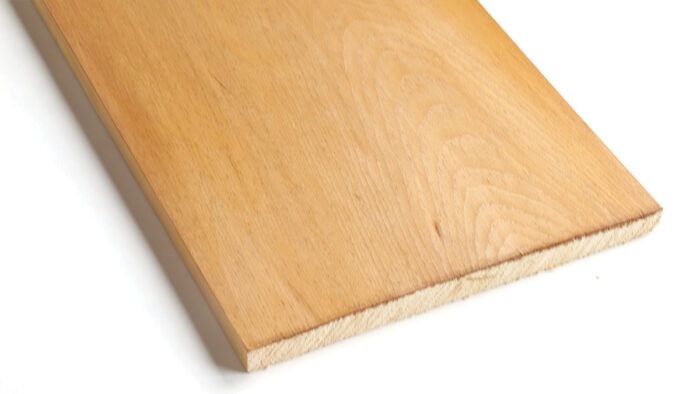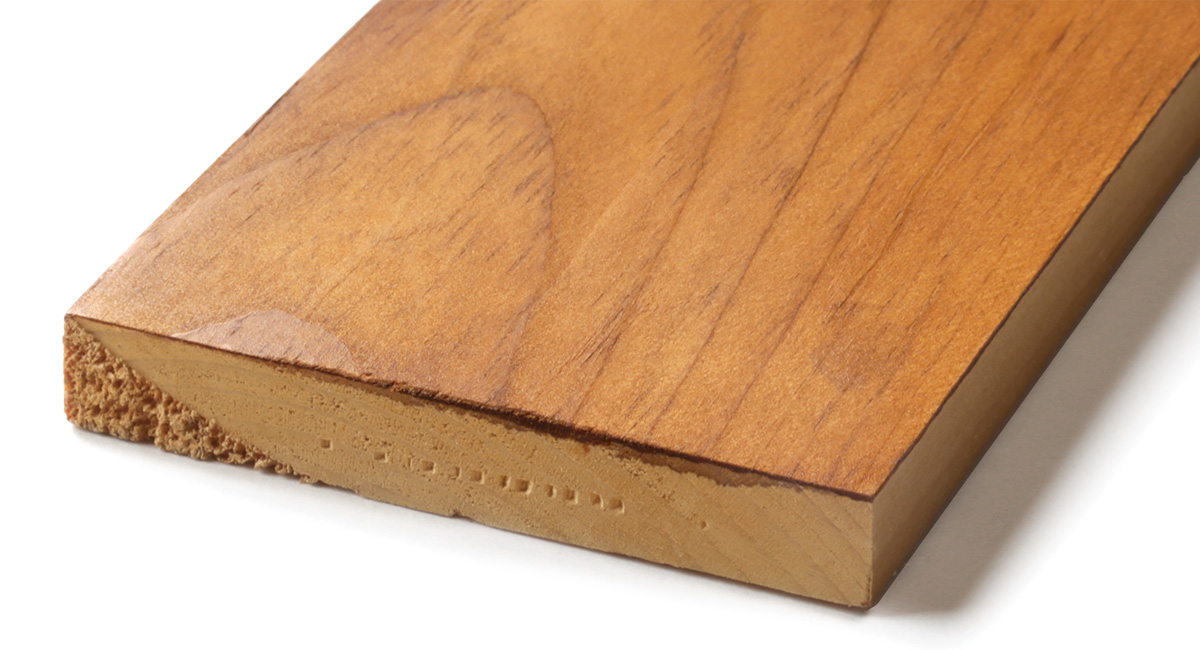Pine’s notoriously splotchy thanks to its uneven density, but that doesn’t mean it’s unusable. From subtle coloring to full-on painting, there are numerous routes for success.
Pretreat
Apply a touch of colorant and a layer of dark shellac. One of Klein’s preferred methods for working around pine’s blotchiness is to go light on the colorant (top) and use a darker shellac (bottom) as either the base layer or the final finish.
Tip: Go darker, not deeper. You can also successfully color pine with diluted dyes or gel stains that don’t penetrate as deep, thereby avoiding highlighting the pine’s blotch-prone uneven density.
Paint
Painted pine’s a traditional option… Pursuing functional joy, Jim McConnell’s chest balances the practicality of pine with the playfulness of painted patterns.
… that’s still evergreen today. Although his design is more contemporary, Barry NM Dima knew from the outset he was going to use milk paint on the base on this coffee table as a counterpoint to the thick, natural Eastern white pine top.
Get the grain and paint with grain painting. Klein’s tool chest is Eastern white pine, but you wouldn’t know it at first glance. He experimented with grain painting on the outside, using colors and patterns that mimic mahogany. He even painted the banding. This traditional technique let him combine the working benefits of pine with the look of a more expensive wood.
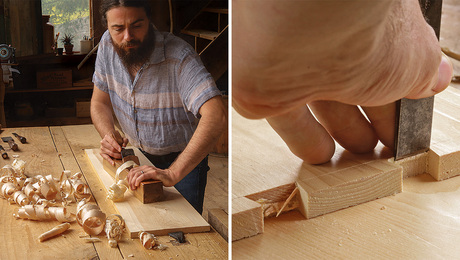 |
For the Love of Pine |
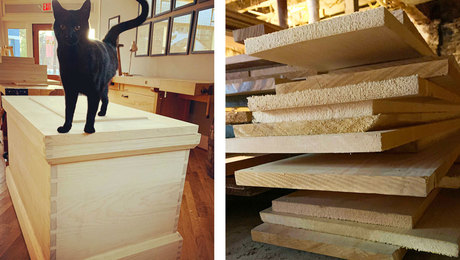 |
Pine(ing) for perfection |
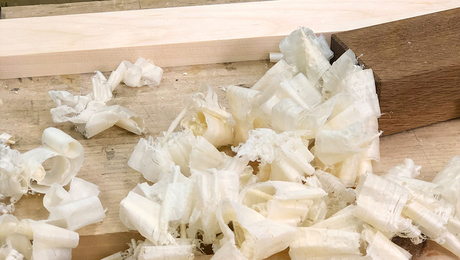 |
Give pine a chance |

